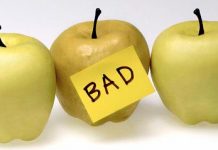Inside Higher Ed has an essay by Alexandra Juhasz, who is a professor of media studies at Pitzer College, about her thoughts on the creation and publishing of her first video-book by MIT Press, Learning from YouTube. Here’s a snippet.
The Internet is certainly warping the reading, writing, and learning practices of our students and society more generally. This was the focus of the undergraduate Media Studies course, Learning from YouTube — held both about and on the site over three semesters in 2007, 2008, and 2010 — that is also the subject of my self-reflexive video-book about teaching, writing about, and publishing inside of the very sphere I analyze. There, I found that engaged, situated online pedagogy and research begs for new writing forms and demands its own publishing models. As one of the first scholars to get the support to do so, I detail some of the lessons as well as the still open questions of fully online scholarly publishing:
- Medium specificity: A scholar should ask: What book medium is best suited for my study — codex, e-book, video-book, other? I have found that digital publication is ideal for inquiry into and expression about Internet and visual culture, new media forms, digital archives and databases. Given its home and topic, it never made sense for my project to leave the Net. Furthermore, a significant amount of my argument about YouTube is expressed in video and/or links off the book. And the videos are not illustrations, they are part of its writing, i.e., video-book. For example, many of the texteos [a page that expresses meaning through the integration of design, written text and video (text+video=texteo)] of the video-book are comprised only of one lone YouTube video.
Much more in the article. Thanks to Michael von Glahn for the link.

































